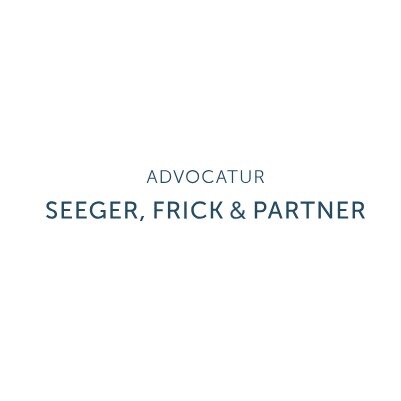Best Adoption Lawyers in Schaan
Share your needs with us, get contacted by law firms.
Free. Takes 2 min.
Free Guide to Hiring a Family Lawyer
List of the best lawyers in Schaan, Liechtenstein
About Adoption Law in Schaan, Liechtenstein
The principality of Liechtenstein, including the region of Schaan, adheres to a framework of laws and regulations concerning the adoption process. Adoption in Liechtenstein is intended to provide permanent homes for children who are without proper parental care. The legal structure ensures that adoptions are conducted in the best interest of the child, maintaining the child's welfare and rights while also fulfilling the legal requirements for adoptive parents.
Why You May Need a Lawyer
Adoption proceedings can be complex and involve several legal nuances. A lawyer specializing in adoption can offer invaluable assistance during various stages such as:
- Managing the extensive documentation required for the adoption process.
- Guiding through home studies and evaluations conducted by social services.
- Ensuring compliance with both local and international adoption laws and conventions.
- Representing you in court appearances and legal procedures.
- Advising on parental rights and obligations pre and post-adoption.
Given the stakes involved in adoption, legal expertise can help streamline the process and mitigate potential challenges.
Local Laws Overview
Adoption laws in Schaan, Liechtenstein, are part of the broader legal context governed by Liechtenstein's national regulations. Some key aspects include:
- Eligibility: Potential adoptive parents must meet certain requirements regarding age, health, and marital status.
- Best Interests of the Child: The paramount concern in any adoption proceeding is the well-being and best interests of the child.
- Consent: Consent must be obtained from the biological parents unless there are extenuating circumstances such as abandonment.
- Home Studies: Social services will perform home studies to evaluate the suitability of the adoptive parents' home environment.
- Inter-Country Adoption: For international adoptions, it must comply with both Liechtenstein laws and the laws of the child's country of origin.
Frequently Asked Questions
1. Who is eligible to adopt in Schaan, Liechtenstein?
Individuals who meet the specific requirements set by Liechtenstein authorities, including age, health, and marital status, are eligible to adopt. Additional criteria might apply for specific types of adoption (e.g., international adoption).
2. Is it necessary to be a Liechtenstein citizen to adopt?
No, non-citizens can also adopt, but they must comply with both local regulations and any relevant international laws.
3. How long does the adoption process take?
The duration varies depending on factors such as the type of adoption, the child's needs, and the efficiency of processing documentation. It typically takes several months to a few years.
4. What is a home study?
A home study is an evaluation conducted by social services to assess the suitability of the adoptive parents and their household for the child.
5. Can single individuals adopt?
Yes, single individuals can adopt, provided they meet all other eligibility criteria.
6. What costs are involved in the adoption process?
Adoption costs can vary widely and may include administrative fees, legal expenses, home study fees, and travel expenses for international adoptions.
7. Can I adopt a child from another country?
Yes, international adoptions are possible but must comply with Liechtenstein's adoption laws and the regulations of the child's home country.
8. What happens after the adoption is finalized?
Post-adoption, parents may be required to submit reports or follow-up studies to ensure the child's continued welfare and integration into the family environment.
9. Can the biological parents contest the adoption?
Biological parents must consent to the adoption unless their rights have been legally terminated due to abandonment, neglect, or other reasons. Contested adoptions may need to be settled in court.
10. What are the legal rights of an adopted child?
An adopted child has the same rights as a biological child, including inheritance rights and the right to parental support and care.
Additional Resources
For further assistance, you can contact the following resources:
- Department of Social Services, Liechtenstein
- Adoption agencies operating within Liechtenstein
- International adoption organizations
- Licensed family law attorneys specializing in adoption
- Support groups and networks for adoptive parents
Next Steps
If you are considering adoption and need legal assistance, follow these steps:
- Consult a Lawyer: Reach out to a lawyer specializing in family law and adoption. They can provide personalized advice based on your unique situation.
- Gather Information: Collect necessary documents, medical records, and any previous legal materials that may be pertinent to the adoption.
- Initial Consultation: Schedule an initial consultation to discuss your options, potential costs, and the timeline for the adoption process.
- Prepare for Home Study: Ensure your home environment is ready for evaluation by social services.
- Follow Legal Guidance: Adhere to the procedures and requirements set forth by your lawyer and the relevant authorities to ensure a smooth adoption process.
Embarking on the adoption journey can be profoundly rewarding, but it's essential to be well-prepared and informed. Professional legal guidance can be invaluable in navigating this complex process.
Lawzana helps you find the best lawyers and law firms in Schaan through a curated and pre-screened list of qualified legal professionals. Our platform offers rankings and detailed profiles of attorneys and law firms, allowing you to compare based on practice areas, including Adoption, experience, and client feedback.
Each profile includes a description of the firm's areas of practice, client reviews, team members and partners, year of establishment, spoken languages, office locations, contact information, social media presence, and any published articles or resources. Most firms on our platform speak English and are experienced in both local and international legal matters.
Get a quote from top-rated law firms in Schaan, Liechtenstein — quickly, securely, and without unnecessary hassle.
Disclaimer:
The information provided on this page is for general informational purposes only and does not constitute legal advice. While we strive to ensure the accuracy and relevance of the content, legal information may change over time, and interpretations of the law can vary. You should always consult with a qualified legal professional for advice specific to your situation.
We disclaim all liability for actions taken or not taken based on the content of this page. If you believe any information is incorrect or outdated, please contact us, and we will review and update it where appropriate.









